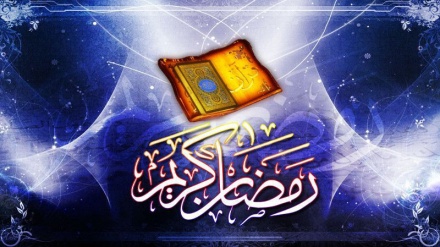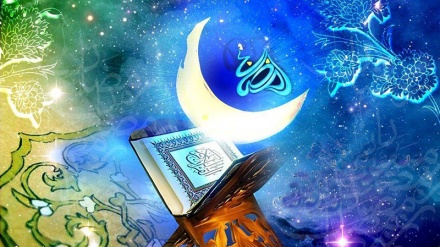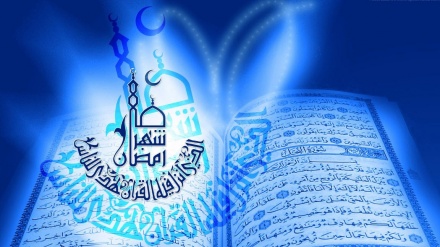Blessed Month of Ramadhan
Welcome to the 18th episode of the series “Blessed Month of Ramadhan”. One of the manifestations of gratefulness toward God is to express gratitude toward people in return for their good deeds.
In other words, expression of gratitude toward people is tantamount to being grateful to God. The culture of gratitude is a topic of importance in Islamic teachings. Prophet Mohammad (Blessings of God upon him and his progeny), has said that the one who is ungrateful toward people, is ungrateful toward God.
We start today’s discussion with praise of God. We are grateful to God for once again granting us the opportunity to partake of His special blessings and to seek forgiveness in the divine court through sincere repentance.
How awful is the state of those, who are mired in sins during the blessed month of Ramadhan and as a result are depriving themselves of divine forgiveness!
Today, we speak of gratefulness toward divine blessings. Several ayahs of the Holy Qur’an instruct mankind to be grateful for divine blessings which have been bestowed upon them. Faithful persons always remember divine blessings and are grateful to God. They make proper use of divine blessings in order to please God. In the Holy Qur’an, God has promised to increase the blessings for those, who are grateful to Him. The Prophet’s 6th Infallible Heir, Imam Ja’far Sadeq (peace upon him), has said: Be grateful to those, who have done favours to you and be kind toward those who have thanked you, because if one is grateful for the blessings of God, such blessings will last, and if one is ungrateful toward blessings, they won’t last.
Righteousness is tantamount to being totally grateful to God, whenever a woe or disaster is dispelled and whenever we remember divine blessings. Obviously, God is needless of the gratitude of His servitudes, given that He is Omnipotent and the One and Only creator of the universe. Thus, in Ayah 40 of Surat al-Naml, God says:
“And whoever gives thanks, gives thanks only for his own sake. And whoever is ungrateful should know that God is indeed all-sufficient, all-generous.”
Once God revealed to Prophet Moses, instructing him to express his gratitude toward God. Prophet Moses said how he could fully express his gratitude toward God, while the ability to be fully grateful toward divine blessings was a separate blessing, on its own, which one should be grateful for. At this point, God addressed Prophet Moses and noted that Moses had then expressed his gratitude before God, because he had come to realize that all of these blessings have been bestowed by God.
Ayah 40 of Surat-al-Hajj reads:
“Those who were expelled from their homes unjustly, only because they said, ‘Allah is our Lord.’ Had not Allah repulsed the people from one another, ruin would have befallen the monasteries, churches, synagogues and mosques in which Allah’s Name is mentioned greatly. Allah will surely help those who help Him. Indeed Allah is All-Strong, All-Mighty.”
This ayah refers to the injustices that the pagan Arabs committed against the faithful, and points out that Muslims were driven away from their homes and hearths by the polytheists of Mecca for no reason. In addition to the persecution of Muslims in Mecca, the pagan Arabs forced them from their homes, and made them leave their belongings behind. And the reason the Arabs persecuted Muslims was that Muslims said Allah is their Lord.
Obviously, belief in monotheism is a source of honour. However, polytheists who could not stand this confession drove out Muslims from their homes and hearths and forced them to migrate. Thereafter, God has described one of the philosophies behind the decree of Jihad in this ayah, noting that had not Allah repulsed the people from one another, ruin would have befallen the monasteries, churches, synagogues and mosques in which Allah’s Name is mentioned greatly. Obviously this divine ruling is alongside the fact that people’s defense of their vital interests is completely in line with their innate nature. All human beings have made use of the ability to contemplate which God has granted them, in order to defend themselves. Certainly, defending oneself via engagement in battles is the last option for defending ourselves. A Muslim only resorts to war when he has tested other approaches which have been inconclusive. In battles, a number of individuals are sacrificed so that the rest of people are saved and rescued. They tolerate difficulties of war in order to provide comfort for other people, and to dispel threats.
The ending sentences of this ayah point out: “Allah will surely help those who help Him. Indeed Allah is All-Strong, All-Mighty.”
Naturally, God fulfills His pledge of victory and He is the one who assists Muslims against enemies in the battlefields.
Those, who fast, should prepare their bodies to fast a long number of known hours, at the break of dawn. Thus, they should consume the best and most nutritious foods and drinks so that they would not feel thirst and hunger throughout the day. Water is always considered as the best drink in any phase in time. Water is a pure liquid, and is one of the necessities in the lives of creatures. The value of this precious liquid is to the extent that the Commander of the Faithful, Imam Ali (AS), has referred to it as the best drink of the world and Hereafter. The Prophet of God prayed to God whenever he drank water, expressing his gratitude to God for this divine blessing.
According to nutritionists, it is better to consume more water with Sahari (the food those taken late midnight before the break of dawn). Meanwhile, the water you consume should not be too cold or too warm.
In order to prevent thirst throughout the day, you can add a few drops of lime juice in your water. This solution works miracles throughout the warm days of summer and prevents thirst within the hours, which you fast. One of the best replacements of water for those, who become very thirsty throughout the day is chicory distillate.
Iranian Nutritionist, Dr. Mazhari, notes that the best drink for those, who fast, is water, which should not be very cold. Cold drinks provoke the stomach and do not quench thirst. Anther appropriate drink that can be consumed with Sahari is Iime juice syrup. This syrup should be prepared with fresh lime and a small amount of sugar or honey, because sugar causes the secretion of insulin, which in turn drops blood sugar, leading to physical weakness in midday. Note that excessive consumption of water with Sahari isn’t recommended, because it will not have an impact on regulation of body liquids and quench of thirst, throughout the day.
AS/ME


